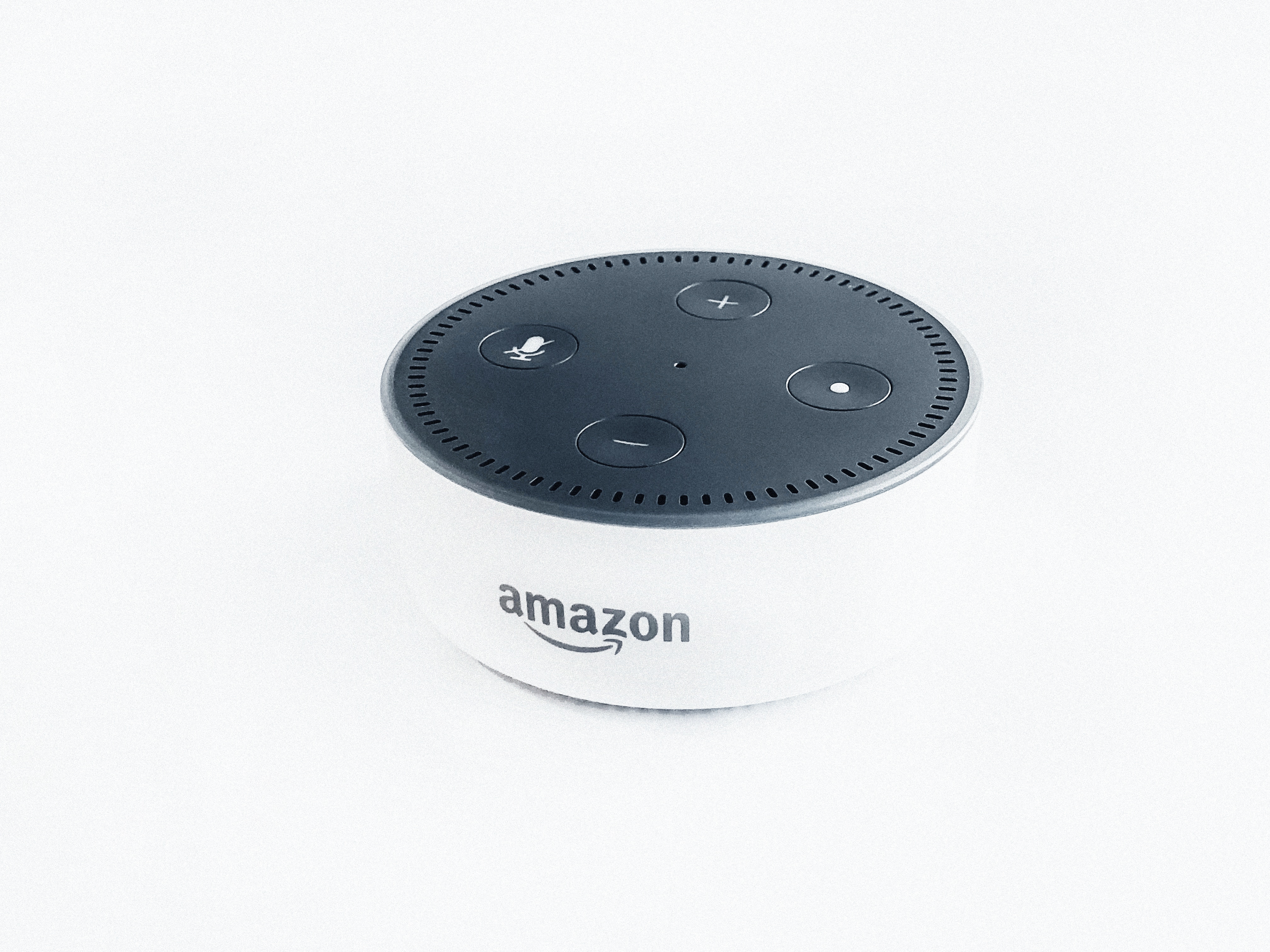
As a parent, you try to keep your home as childproof and safe as possible. It starts with baby-proofing the electrical outlets, installing nightlights in the hallway, and learning the hard way that apps need two-step authentication unless you want to be the proud owner of $500 worth of bonus tokens for your child’s favorite iPad game. But what happens when your Internet-connected devices are suddenly bringing dangers right into your living room?
As you read this post you might be in your kitchen, TV room, or hanging out on the living room couch looking around at your various devices. Let’s say the TV has parental controls on, your computer has a lengthy passcode, and the Nest is PIN-protected. Now take a look at your speakers. Has your home joined the ranks of millions of other homes that have Alexas (or other AI speakers)? If you answered yes, then you might want to say “no,” at least when it comes to using your Alexa.
Alexa runs on an AI system, which means that it uses artificial intelligence to engage with your family … even your young children. Like other AI speakers, Alexa is designed to improve its skills over time. From learning how to tell jokes, to keeping track of the time, to purchasing groceries, to answering questions, Alexa speakers are meant to act like real people, and like real people, Alexas are often listening even when you don’t think they are.
Simply put, Alexa and Google Home are always listening. If you are alarmed by that, you aren’t alone. Just recently Alexa recorded a family’s private conversation and sent it to a random person from their contact list. This invasion of privacy is particularly alarming if you are a parent. It means that Alexa can record your conversations with your child, upload the conversations to the cloud, and use this private information to learn more about your little ones.
If this invasion of privacy isn’t enough to make you “say no” to Alexa, then you should know that Alexa and Google Home occasionally provide NSFW content to children. For example, the device might hear a song request and respond with the explicit version. Suddenly instead of hearing the Kidz Bop version to Katy Perry’s Hot N Cold your kids are belting out the adult lyrics. Let’s just say, they’re quite different from, “Yeah you change your mind, I would know … we hug, we make up.”
Like baby-proofing your outlets, you need to take the steps necessary to protect your family’s privacy and safety from Internet-connected and AI devices. To help you protect your family, you can use trusted services to remove unsavory third-party hosts, unwanted advertisements, and even cookies that track your digital movements. After all, no one wants the classic, “If you’re American in the living room, what are you in the bathroom?” joke to turn from the giggle-inducing “Euro-peein'” into a NSFW sound clip.






